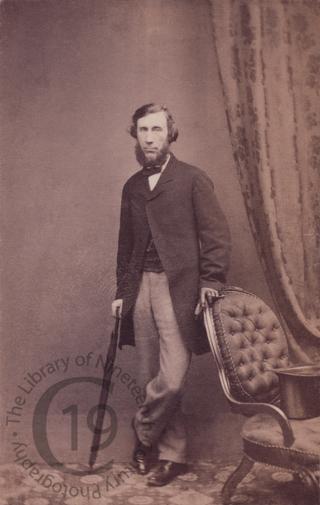
John Tyndall
A carte-de-visite portrait of John Tyndall (1820-1893), Irish man of science.
With Charles Darwin and Thomas Huxley, Tyndall’s name is inseparably connected with the battle which began in the middle of the nineteenth century for making the new standpoint of modern science part of the accepted philosophy in general life. For many years, indeed, he came to represent to ordinary Englishmen the typical or ideal professor of physics. His strong, picturesque mode of seizing and expressing things gave him an immense influence, both in speech and in writing, and disseminated a popular knowledge of physical science that had not previously existed.
In 1874, Tyndall gave his famous Belfast address before the annual meeting of the British Association for the Advancement of Science. It was one of the most prestigious places from which to pronounce on what men of science should be doing and Tyndall famously used his address to argue for the superior authority of science over religious or non-rationalist explanations. The fact that Tyndall's bold statement for rationalism and natural law was made in Belfast, a stronghold of religious belief, was taken as an aggressive attack on religion. It remains a powerful call for rationalism, consistency, and scepticism.
Besides being a true educator, and perhaps the greatest popular teacher of natural philosophy in his generation, Tyndall was also an earnest and original observer and explorer of nature.
Photographed by Maull and Polyblank of London.
Code: 125391




